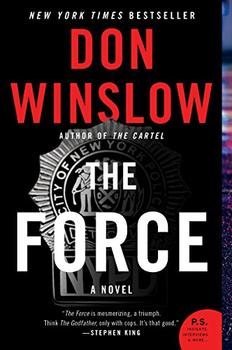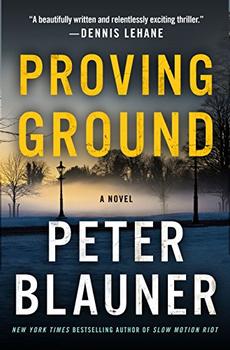Summary | Excerpt | Reviews | Beyond the book | Read-Alikes | Genres & Themes | Author Bio

Blue Light Yokohama, Nicolás Obregón's crime fiction debut, takes place in an exotic locale that becomes character, while spinning out a layered narrative vibrating with a raw undercurrent of sexual tension.
Inspector Kosuke Iwata has been transferred from Chiba Prefectural Police to Tokyo Metropolitan Police's Shibuya Division One. A homicide detective, he's sent to temporarily replace an inspector named Akashi, who recently jumped from Tokyo's famous Rainbow Bridge (see Beyond the Book.) Iwata gets a bit of hazing from the Tokyo detectives, who perceive him as something of a country bumpkin, but beneath his quiet personality is a sophisticated man who spent part of his youth in the United States.
Iwata's backstory makes him a memorable character. His mother placed him in a Japanese orphanage as a very young boy, and his childhood wasn't easy. Later, she married an American and returned for Iwata, moving them both to the U.S. The orphanage thread comes in flashbacks, almost every one also featuring a boy named Kei, Iwata's best friend at the facility. Kei was a supportive friend, but he also had a dominant personality, and those early years had incidents that have left Iwata with hints of confused sexual identity. References to Iwata's American experience are few, but he loves music from the western classical canon, treasures his classic '79 Isuzu 117 Coupé, and deeply loves his American wife, Cleo. Here again Obregón darkens the tale, for Iwata's wife is now institutionalized in a catatonic state, the cause of which proves to be a critical plot point.
Iwata arrives at Tokyo's Shibuya Division just as it has become embroiled in the front-page headline investigation of the murder of Mina Fong, a high-profile entertainer. Iwata is shunted aside, other detectives preferring to hog the headlines and, instead, he's assigned to investigate the murders of the Kaneshiro family. They are ethnic Korean – Zainichi – and in Japan there is an undercurrent of prejudice against Koreans. (A topic explored in Pachinko by Min Jin Lee.) The assignment means a new partner for Iwata, Sakai, assigned by the almost cliché crusty, harried division chief Noriko Sakai. Sexual and professional tensions spark immediately. Iwata watches Sakai as she walks into the supervisor's office dressed in jeans, faded and tight, and purple eye shadow, "her beauty, a simple composition of soft and brutal lines." Her character soon proves to be as layered as Iwata's own.
Obregón's prose sometimes has a literary touch, as when he observes construction in Tokyo's neighborhoods, "Cranes in the distance slept like flamingos ... silver skyscrapers hiding jagged black mountains." As a former resident of Japan, the author's familiarity with the country gives the narrative a touch of reality as he describes Tokyo as "cities within cities, angles incalculable." There are similar well-crafted observations and references that paint a near-perfect backdrop to the story.
Because of the image of a black sun that Iwata sees scrawled on a wall of the house, the investigation of the Kaneshiro killings soon stumble toward members of a cult, Theta – a Jim Jones like group whose eccentric tenets incorporate Tezcatlipoca, the Aztec Lord of Darkness, its core belief being "God would die and the 'real world' would be revealed."
These multiple threads – what's a police procedural without corruption polluting the scene? – and flashes of backstory weave together seamlessly. The narrative keeps the reader guessing, and eager to turn the page. There's plenty of excitement and more than one puzzle. And as the story approaches its conclusion, it grows in complexity, illustrated by the detective chief lamenting that Iwata came to town only to "un-solve one case, discredit another, and shut down half the city." The conflict, internal and external, is entirely believable, no fantasy or exaggerations that lead to wild guesses or "Oh, no! That could never happen!"
Obregôn's Blue Light Yokohama will entrance noir fans with its tangled tale from an exotic locale, a setting and atmosphere that evokes Bladerunner without the science fiction.
![]() This review
first ran in the May 3, 2017
issue of BookBrowse Recommends.
This review
first ran in the May 3, 2017
issue of BookBrowse Recommends.

If you liked Blue Light Yokohama, try these:

by Don Winslow
Published 2018
The acclaimed, award-winning, bestselling author of The Cartel - voted one of the Best Books of the Year by more than sixty publications, including the New York Times - makes his William Morrow debut with a cinematic epic as explosive, powerful, and unforgettable as Mystic River and The Wire.

by Peter Blauner
Published 2018
A sweeping crime novel, an intricate story about the quest for redemption, and a vibrant portrait of contemporary New York City, all told in Blauner's singular voice.
Your guide toexceptional books
BookBrowse seeks out and recommends the best in contemporary fiction and nonfiction—books that not only engage and entertain but also deepen our understanding of ourselves and the world around us.